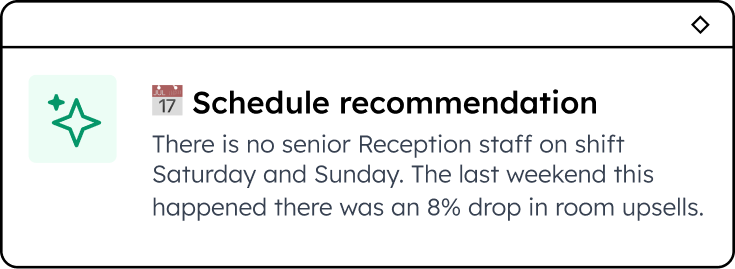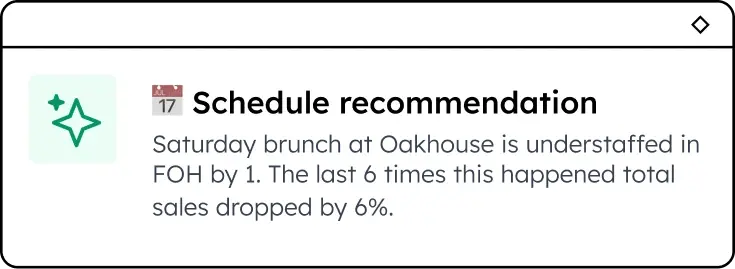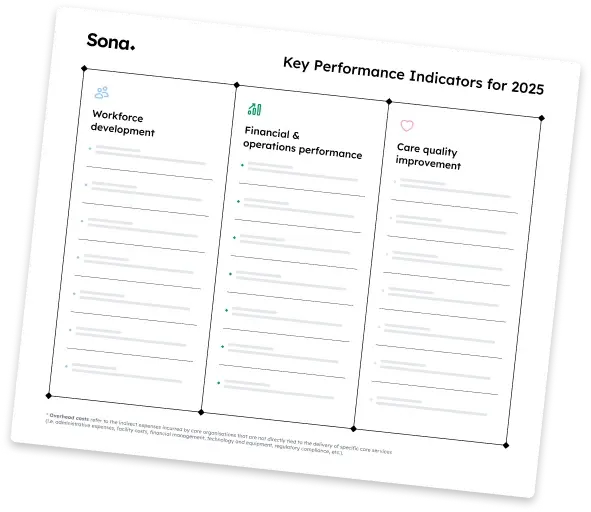5 HR challenges for the Social Care sector in 2023
HR and recruitment teams in Social Care will face many challenges in a year expected to be defined by inflation and its impact on the cost of living. Here are the five biggest challenges–and how to address them.
10 minute read
Last year, many of us expected the formal end of the pandemic to provide a springboard for business. Almost one month into 2023, the reality is very different. Inflation, war, and the pandemic aftermath have created new kinds of uncertainty, and the Social Care workforce will certainly be impacted.
The combined effects of Brexit and COVID-19 have further weakened the already fragile labour market in the Social Care sector. The current employment gap stands at 10% and is projected to account for an estimated one million workers by 2037.
The Social Care sector has also been impacted by all-time high inflation (ending 2022 at 10.7%), serious political turmoil (rapidly changing occupants of Number 10), and the devastating Russia-Ukraine War which, quite apart from its human life cost, has triggered a massive increase in food and energy prices across Europe. Then there has been the disruption caused by wave after wave of industrial action.
< Find out what Social Care can expect from Rishi Sunak >
Recruiting, retaining and motivating frontline staff against this backdrop of economic uncertainty and financial concern means there’s a lot on HR leaders’ plates. So let’s dive into the various HR challenges that the Social Care sector will be facing in 2023.
1) Fighting high cost-of-living prices
The 30-year-high inflation seen in 2022 seems to be slowing down, but not enough. Workers will still need to stretch their income further to be able to manage their household budgets.
Meanwhile, the climbing energy and food prices triggered by the Russia-Ukraine War are showing no signs of slowing down, and the overall cost of living is soaring – groceries have increased 14.6% and transportation costs have gone up 10.9%.
According to the latest National Care Association (NCA) survey, 89% of respondents said they have been affected by the cost-of-living crisis.
The last thing providers can afford is otherwise happy team members leaving due to financial pressures. HR teams will need to assume the role of financial well-being champions within their organisations in order to prevent this.
Here are a few ways HR teams can financially support their employees:
- Offer flexible working arrangements: Being able to work more flexibly can help employees make their money go further, or even increase their earning potential. Some can pick up extra shifts and overtime, while making work fit around childcare and other family commitments can help others reduce their outgoings. Sona’s Shift Filler app offers a new way to boost flexibility without the admin burden.
- Help with their travel needs: Reducing car usage is better for employees’ wallets as well as the environment. Support could include offering secure places to store bikes, providing interest-free loans to buy public transport season tickets, or even considering providing free minibuses to transport workers to their place of work. If staff do need to drive, explore whether you can help with the cost of fuel.
- Provide direct financial support: Such as organising salary advances or no/low-interest loans, setting up payment plans for essential bills, setting up a ‘rainy-day fund’, or offering guidance and support so they can manage their finances better.
Set up feedback forms so employees can express which benefits they would appreciate having. This way, they feel heard, and you can ensure you have the right support in place.
 2) Supporting mental health
2) Supporting mental health
Campaign Collective’s recent research revealed some worrying statistics for UK Social Care employers:
- 82% of Social Care workers suffer from stress at work
- 65% say their mental health is suffering because of their job
- 24% admitted finding themselves experiencing an emotional response to their work at least once a week
With the NCA survey finding that over 40% of respondents believe one of the main focuses of Social Care reform should be workforce training and well-being support, there’s no doubt HR teams must prioritise their employees’ mental health.
Here are some ways in which HR managers and their teams can support their employees’ mental health at work:
- Implementing weekly well-being check-ins: making sure staff feel heard and supported can do wonders for their mental health—the first step to providing effective support is to know what’s going on with them and how they’re feeling.
- Supporting life-work balance: providing flexibility in their working hours and arrangements, as well as offering employee benefits that are targeted to support their lives outside of work, will help them better manage stress, burnout and their overall mental health.
- Creating a solid support system: creating a buddy system or a mentorship program where employees can be paired with others to support each other and learn from others can be a valuable resource to help Social Care workers feel supported
- Providing access to counselling services: Social Care is a very mentally taxing profession. After all, workers are taking care of patients and residents all day, and this can sometimes make them neglect their own health or feel like they can’t talk about their own problems. By providing counselling or making it easier for them to access these services, not only are they being supported, but they can feel that their mental health is taken as something serious–which it is.
By better supporting the mental health of Social Care workers, HR teams are also helping maintain, and even improve, the quality of care given to patients and residents. After all, you can’t pour from an empty cup.
3) Preventing ‘quiet quitting’
Officially, quiet quitting is “when one does not literally quit one’s job, but rather simply does the work that is expected of the position, without going above and beyond what is expected.”
Quiet quitting is more than just a TikTok trend. As of September 2022, only 8% of workers said they were engaged with work in 2022.
In Social Care, this trend could have a significant and very worrying effect on the quality of care – as well as being costly for the business.
How can HR teams implement measures to avoid the effects of quiet quitting? Three words: recognise, train, and develop.
Nowadays, employee recognition and career development programs are no longer a ‘nice-to-have’; they are a must.
In our Appreciation Matters report, we found that:
- More than 2 in 5 Health and Social Care employees have left a job because they didn't feel valued, costing thousands of pounds each to replace
- Over 20% say they rarely, or almost never, feel their work is appreciated
- 77% want to receive recognition from their employer, but just 21% say this happens regularly
HR teams that want to deter quiet quitting can:
- Create a culture of staff recognition: 92% of care workers want more recognition in the workplace; this can be achieved by little things like going social with recognition, micro gifting, and just in general letting workers know you appreciate what they do!
- Support career development: workers don’t want to be stagnant at work; they want to see that they can learn new skills and progress in their careers. HR teams should provide clear frameworks for this and constantly communicate the opportunities available so employees know that they’ll support them with how far they want to go in their professional lives.
- Help staff work on their skills: webinars, online or in-person short courses, and resources are great ways to help workers improve on the skills they might need a bit of help with–maybe an ‘assertive communication’ seminar or a ‘destress after care work’ talk.
 4) Recruiting and retaining the right talent and skills
4) Recruiting and retaining the right talent and skills
The Social Care workforce is shrinking for the first time in 10 years. In 2022, there were 165,000 vacant posts, 52% higher than the years before.
Finding diverse, high-skilled talent is hard enough, but Brexit and COVID-19 have made recruiting–and retaining–the right talent in the Social Care sector even more complicated.
However, there’s hope. 79% of leavers are open to working in Social Care again in the future. In order to attract them back, employers need to ensure they’re listening to workforce demands, identifying pain points and making real changes.
Here’s how HR teams can improve recruiting and retention amid the Great Resignation:
- Reaching underrepresented groups: 21% of the Social Care workforce are people with a diverse background, predominantly female (82%) and with an average age of 44. Reaching people outside these groups can help widen the talent pool–a great example of this is the ‘Seeing potential’ campaign. In fact, the WHO’s Global Strategy on Human Resources for Health advises:
“Consider opportunities to strengthen the skills and employment agenda within countries. This may include re-skilling workers from declining sectors and industries of the economy (e.g. manufacturing, agriculture) to be redeployed in the health and social care sectors, particularly in jobs and roles where the duration of training is short, and entry barriers are relatively low, without compromising the quality of education and care.”
To solve the workforce shortage in Social Care, widening the talent pool is a must. Talent is everywhere - it just needs to be discovered.
-
Improving and portraying a realistic perception of Social Care: people don’t only leave their jobs due to financial needs – after all, they know what the salary will be from the start. But some may leave if they find the work significantly more demanding than expected. By setting up the right expectations (and implementing strategies to ensure employee well-being), workers will stay longer in their jobs.
Additionally, the false perception of Social Care work being low-paid, low-skilled and involving long, demanding hours and little recognition needs to change in order to attract more people.
Outreach programs, working with the media, and participating in various events can help improve the image of the sector.
-
Two-way dialogue to help retain staff: by performing exit interviews with those that choose to leave and constantly having feedback and dialogues with employees can help you understand what you need to do to retain your care staff.
5) Reducing paperwork and workload
Last but not least, HR teams can help their employees thrive by reducing unnecessary paperwork and admin that staff and managers have to go through as part of their current workloads.
Using technology, new, sensible policies, and offering flexible working arrangements can help employees feel like their time is spent where it needs to be: in providing great quality care.
Using solutions like Sona’s Frontline Operating System, you can reduce managers' workload by as much as 5 hours per week, help workers quickly pick up available shifts with just a few clicks, and send feedback forms within seconds through the app.
We're ready to help you face these challenges in 2023
Start 2023 with your best foot forward by following these tips on how to address each of the five biggest HR challenges the Social Care sector faces. See how Sona can help you make the most of your workforce today – book a time to speak with us.
Enjoyed this article? Let's stay in touch 👋
If you liked this article, why not subscribe to our newsletter to get the latest news and views delivered straight to your inbox?



















